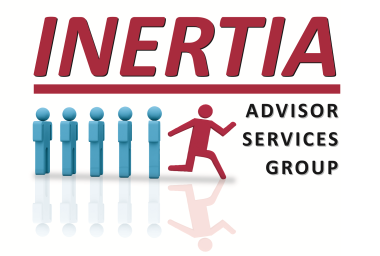Beyond the Basics: Ten Unique Ways To Maximize LTC Planning
When advisors or consumers think about Long-Term Care (LTC) insurance, they often picture traditional coverage for home health aides, assisted living facilities, and nursing home care. But what if LTC benefits could cover much more than just hands-on care? Today’s LTC Planning solutions provide flexibility that goes well beyond the basics of home health care, assisted living facilities, nursing homes, etc.
Many of the top LTC insurance solutions offer “indemnity benefits” or provisions that allow consumers to use those dollars as they wish, from pet boarding to caregiver travel expenses, so if you (or your clients) are only thinking about LTC insurance in conventional terms, you’re missing out on some game-changing financial protection.
Here are ten unique, even “outside-the-box” expenses that some LTC insurance solutions can help cover:
Home Modifications: Going beyond ramps and grab bars, LTC benefits can be used to make a home safer, but some policies extend to upgrades like smart home technology (voice-activated lighting, security cameras, etc.), walk-in bathtubs or roll-in showers for easier mobility, and ceiling hoists/lifts to assist with transfers. These modifications can allow people to stay at home longer instead of needing facility-based care.
Aging-in-Place Technology & Remote Monitoring: LTC benefits can support technology that enables independence, such as remote patient monitoring for vital signs and fall detection, medication management systems with automated reminders, and virtual reality therapy for cognitive stimulation and entertainment. These tools extend the ability to age in place and live at home safely.
Caregiver Respite & Burnout Prevention: It can be rewarding for family or loved ones to become caregivers, but it can also be physically and emotionally draining. A client’s LTC insurance can help with temporary in-home (respite) care, so family caregivers can take a break, adult day care services to provide structured social activities, and wellness retreats or spa days for overworked caregivers. All of that can prevent caregiver burnout and lead to better LTC outcomes.
Pet Care & Boarding Costs: Many policyholders have pets, so what happens to those furry family members when someone needs extended care? LTC benefits could cover pet boarding or pet-sitting services, veterinary visits, grooming, and food, or even finding a new home for the pet if the owner can no longer care for their “fur baby”……For pet lovers, this could be a significant relief!
Travel & Lodging for Family & Caregivers: Imagine a client needing care, but their closest loved ones live out of state. Some policies provide cash benefits that can be used for flights and hotel stays for family caregivers, transportation costs for long-distance caregiving, or temporary rental accommodations if a family member relocates to assist. For families spread across the country, this benefit is invaluable.
Personal Concierge or Companion Services: LTC insurance isn’t just about medical care—it can also cover services that improve quality of life, such as companion services for socialization and mental stimulation, personal shoppers for groceries or essentials, and even tech support to help seniors stay connected via video calls and emails. Maintaining social engagement is just as important as physical well-being.
Alternative Therapies & Holistic Care: Traditional healthcare isn’t the only route for care, and your client’s LTC plan could provide benefits for acupuncture for pain management, massage therapy for muscle relief, music or art therapy for cognitive stimulation, and even aromatherapy to support relaxation. This holistic approach can provide comfort beyond standard medical treatment.
Non-Traditional Housing Arrangements: Most of your clients want to avoid a nursing home or assisted living facility, so LTC benefits can be utilized for group homes with shared caregiving arrangements, tiny homes or backyard cottages (ADUs) built near family, or senior co-living communities that foster independence. These creative living arrangements can provide a higher quality of life with built-in support.
Legal, Tax, & Legacy Planning: Even for those with insurance to pay for LTC when needed, various legal, tax, and legacy issues can’t be ignored. Their LTC insurance might cover legal fees for guardianship, power of attorney, or estate planning consultations for trusts and Medicaid planning, or even philanthropic ways to fund LTC expenses. Clients with their affairs in order will prevent stress and confusion down the road.
Specialized Meal Delivery & Nutrition Support: Food is a critical part of care—especially for those with dietary restrictions, and a client’s LTC benefits might be used to cover specialized meal services for diabetes, dysphagia, or other health needs, home-delivered meals, or dietary consultations for customized nutrition plans…..Good nutrition enhances health and recovery.
It’s time to recognize that LTC insurance is much more than paying for basic care, and it’s time to rethink its value in your client’s planning and how the right plan can cover far more than expected. The advisory community needs to do more to help clients understand their options, especially the financial leverage insurance-based LTC Planning provides to maintain their quality of life.
Your clients are waiting for you to start this discussion……
20250207

